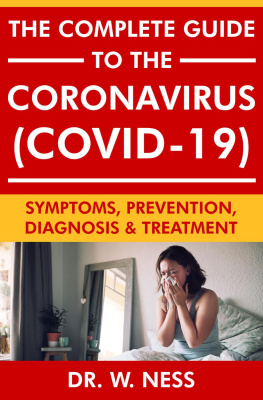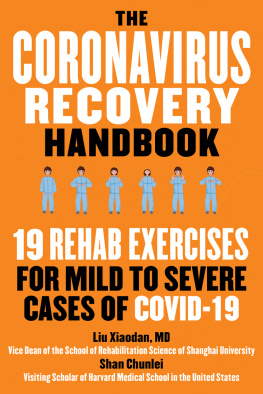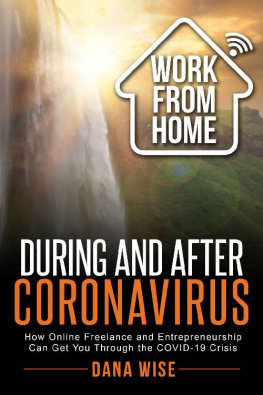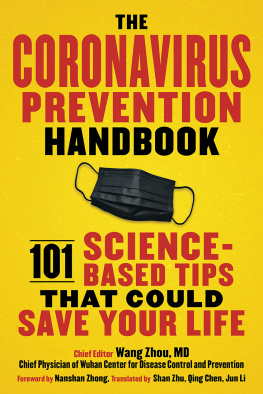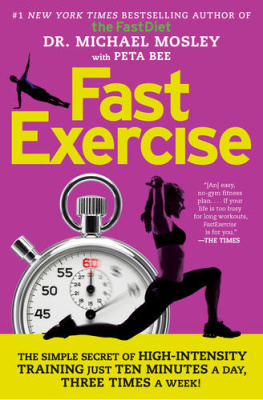Meg Meeker - 7 Keys to Staying Sane During the COVID-19 Crisis (Coronavirus)
Here you can read online Meg Meeker - 7 Keys to Staying Sane During the COVID-19 Crisis (Coronavirus) full text of the book (entire story) in english for free. Download pdf and epub, get meaning, cover and reviews about this ebook. year: 2020, publisher: Regnery Publishing, genre: Home and family. Description of the work, (preface) as well as reviews are available. Best literature library LitArk.com created for fans of good reading and offers a wide selection of genres:
Romance novel
Science fiction
Adventure
Detective
Science
History
Home and family
Prose
Art
Politics
Computer
Non-fiction
Religion
Business
Children
Humor
Choose a favorite category and find really read worthwhile books. Enjoy immersion in the world of imagination, feel the emotions of the characters or learn something new for yourself, make an fascinating discovery.

- Book:7 Keys to Staying Sane During the COVID-19 Crisis (Coronavirus)
- Author:
- Publisher:Regnery Publishing
- Genre:
- Year:2020
- Rating:4 / 5
- Favourites:Add to favourites
- Your mark:
- 80
- 1
- 2
- 3
- 4
- 5
7 Keys to Staying Sane During the COVID-19 Crisis (Coronavirus): summary, description and annotation
We offer to read an annotation, description, summary or preface (depends on what the author of the book "7 Keys to Staying Sane During the COVID-19 Crisis (Coronavirus)" wrote himself). If you haven't found the necessary information about the book — write in the comments, we will try to find it.
Meg Meeker: author's other books
Who wrote 7 Keys to Staying Sane During the COVID-19 Crisis (Coronavirus)? Find out the surname, the name of the author of the book and a list of all author's works by series.
7 Keys to Staying Sane During the COVID-19 Crisis (Coronavirus) — read online for free the complete book (whole text) full work
Below is the text of the book, divided by pages. System saving the place of the last page read, allows you to conveniently read the book "7 Keys to Staying Sane During the COVID-19 Crisis (Coronavirus)" online for free, without having to search again every time where you left off. Put a bookmark, and you can go to the page where you finished reading at any time.
Font size:
Interval:
Bookmark:
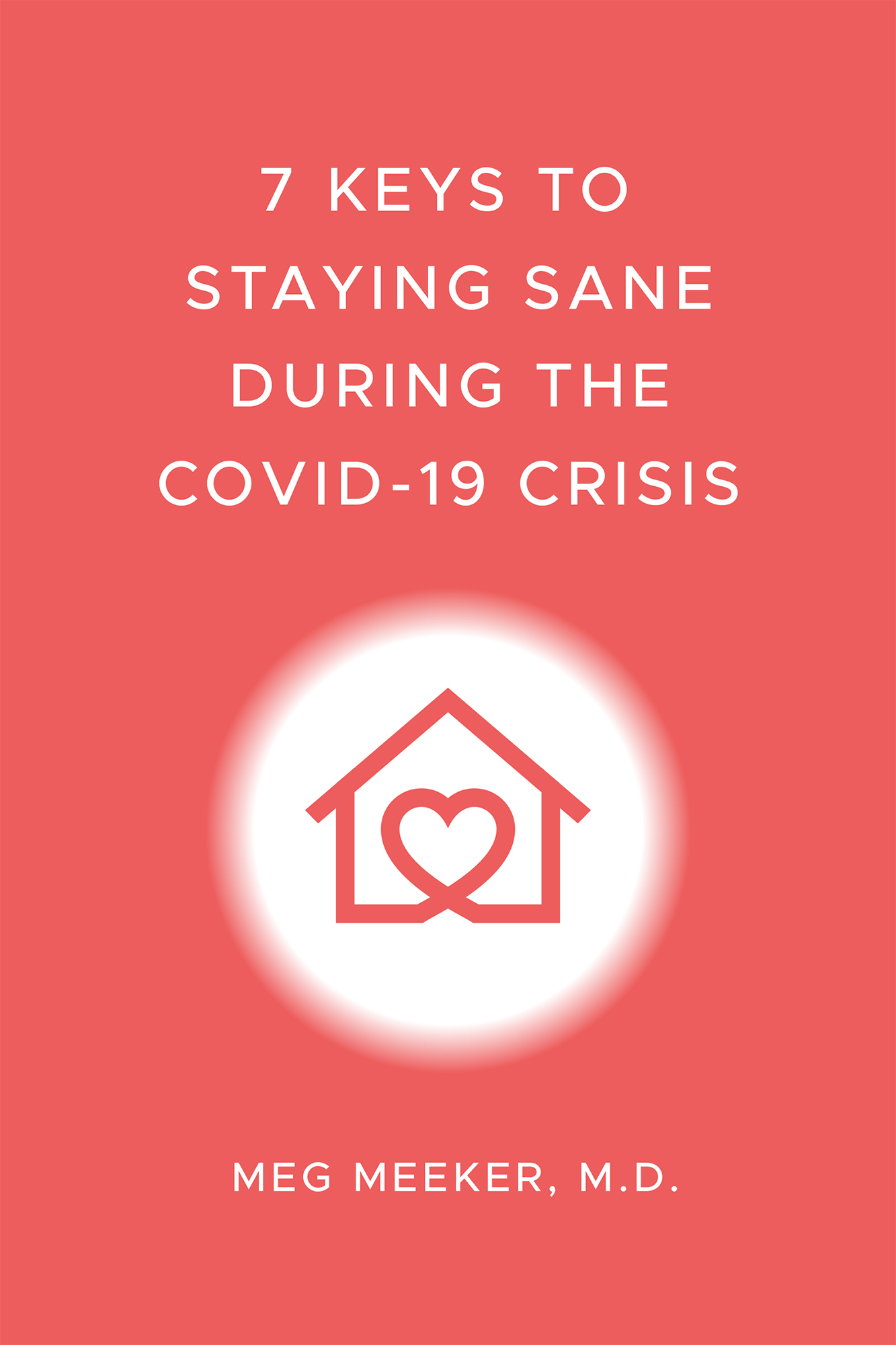

Meg Meeker, M.D.Americas family doctorshares the seven keys to staying sane in the suddenly locked-down world of the coronavirus. Her new mini-ebook is your familys essential guide not just to surviving but to thriving, even as your world is turned upside down.
Dr. Meeker prescribes practical steps that every family can take to handle the stress of close quarters, separation from friends, and unprecedented financial strain. Your family can even grow stronger as a result. Addressing the needs of the whole personthe physical need for a regular schedule and exercise, the emotional need for connection with others, the spiritual need for quiet prayer or meditationDr. Meeker sounds an encouraging call not to give in to the fear and chaos all around us.
An invisible germ turned our lives upside down in one short week. One day we had a job, the next day we didnt. Our kids were in school and suddenly they were home, cut off from friends and sports and forced to spend twenty-four hours a day with us. Streets went from crowded to eerily empty. Each adult and child stared at the walls of their homes wondering if life had changed forever or if this upheaval was temporary. On top of the fear that the COVID-19 virus brought regarding our physical health, many experienced varying degrees of emotional and mental turmoil. Was this the new norm for life? Would we get our jobs back, would our kids return to school, or would we be living this way for the next year?
The sudden change wouldnt have been so unnerving if life hadnt been so good before. We had good jobs, good schools, and low unemployment. Parents spent time with their kids and enough time away that we were excited to see one another when home. We never thought about how many rolls of toilet paper or bottles of Purell sanitizer we had. Before COVID-19, some people had never used hand sanitizer. Now, it was a commodity rivaling gold.
The peculiar truth about life is that it really is fragile. When life is good, we know this in our minds, but we never quite believe it. Disruption, job loss, and pandemics are ideas that happen in other eras, in other countries. But now, it is happening in our time, in our homes. Unlike wars in years past, we had no warning. The COVID-19 epidemic blindsided us much the way an earthquake might suddenly tear houses down and crush people in their sleep.
The question for each of us now is: How can we thrive during this pandemic? Or even, can we? Many worry that they may not make it out of this alive, and I understand their fear. Some may not. But the reality is that the majority of us will. No one knows who will make it and who wont, and thats where the terrifying fragility of life hits home. The truth is, coronavirus may not be the last disruption of our lives, and it is important now to roll up our proverbial sleeves and get to the business of living with confidence, not fear. And we can absolutely do this. But in order to stand up straight in the midst of fear, we need to be intentional. We need to adopt behaviors and strategies that seem foreign to us. We know that we can because we are strong people. Every single one of us can dig deep and thrive during this time, not just get by. We will learn remarkable lessons about ourselves and our loved ones. We will see parts of our characters that we never knew existed, and thats very exciting. As I said, however, making life changes to combat illness, fear, and disruption doesnt come without work. Here are seven changes any of us can make that will make life manageable and ease the burdens COVID-19 has thrust upon us.
We are creatures of habit, and we need a rhythm to our days. Most of us subconsciously establish these rhythms with our mealtimes, work, and sleep schedules. But with these broken, we need to start over. We used to get up at 7:00 a.m. and go to work, but since we work from home and can start at 10:00 a.m., why get up at 7:00 a.m.? Because it will keep you sane. We used to eat breakfast at 8:00 a.m., work until a lunch break at 12:00 p.m., and try to get some exercise before dinner. Kids went to school, worked until lunch, and either came home at 3:00 p.m. or went to soccer practice. But these daily routines are gone. No battles with reading, math, or science. No school lunches and no sports. Just open days with Mom or Dad at home. Can you imagine how this must feel to a senior in high school getting ready to graduate?
Moving forward from predictable activities to empty days, regardless of the reason, throws us alladults and kidsphysically, mentally, and emotionally off-balance. Our physiology runs on schedulescortisol, neurohormones, and the many other hormones our bodies are used to releasing at certain times. They have figured out how to get us through our days, and now they too are disrupted.
We are the adults in charge of ourselves and our kids, and we need to be the first to take charge. We need to begin by making daily schedules for ourselves and our kids in order to restore balance. They can have flexibility, of course, but there are things our bodies and minds need to thrive. This means that we need time to think, exercise, and work in some capacity. Quiet time in which we can read or collect our thoughts, exercise to work the kinks out, and work to keep us feeling productive will be the difference between caving in or thriving. So if your days have become a free-for-all, shore things up at home. You dont need to be overly rigid, controlling the minutes in your and your kids days, but you do need to know what will happen the next day during the morning, afternoon, and evening.
Tackling the loneliness we experience when told to stay away from friends and family is probably the most difficult part of quarantine. When earthquakes, fires, or other natural disasters hit, friends and strangers cling to one another to move forward. Its human nature to lean on others for support and to want to help others. When we are separated, though, we cant cling or lean. We cant go to work and chat about our struggles with kids, our spouse, or work. Kids cant meet in the hallway and complain about their parents. While these releases seem trivial, they are necessary to help us stay emotionally balanced. Human beings are made for relationships. The reason we are alive is to have relationships with God and others. We arent here simply to be good at our jobs, sports, or other activities. We were made to love, communicate, argue with, and comfort others. So when our intimacy with others is ripped away, we need to replicate it as nearly as we can.
This is where the miracle of screens comes in. One month ago, we complained about how screens have disrupted our lives and changed our relationships for the worse, and now we love them. They are saving us. Screens make it possible to see others. We cant hug loved ones, but we can see their facial expressions. We can hear disappointment, affection, or sadness. We can help one another face the challenges before us. In that exchange, we feel supported and understood. If one of us is slipping into anxiety or depression, we can catch him before he surrenders to despair. Perhaps we cant do it as well as if we were face to face, but it is better than nothing. If another is thriving more than we are, we can ask for help and encouragement.
Screens cant give us real intimacy, but in the short term they provide us with helpful connection. Without that exchange, loneliness would overcome us and our mental fragility would expand. Any of us can fall into despair if cut off long enough from friends or family. We may feel independent, self-reliant, and fully autonomous (as were told we should be), but we really arent any of these. In a crisis, this truth hits us squarely in the face. It is tough to admit, but when we do, we are set free from many of the burdens we put on ourselves. Experiencing real loneliness and the need to connect with others makes us feel vulnerable and weak. Thats because we are. Perhaps recognizing that we need one another is one of the greatest blessings in catastrophe.
Font size:
Interval:
Bookmark:
Similar books «7 Keys to Staying Sane During the COVID-19 Crisis (Coronavirus)»
Look at similar books to 7 Keys to Staying Sane During the COVID-19 Crisis (Coronavirus). We have selected literature similar in name and meaning in the hope of providing readers with more options to find new, interesting, not yet read works.
Discussion, reviews of the book 7 Keys to Staying Sane During the COVID-19 Crisis (Coronavirus) and just readers' own opinions. Leave your comments, write what you think about the work, its meaning or the main characters. Specify what exactly you liked and what you didn't like, and why you think so.


